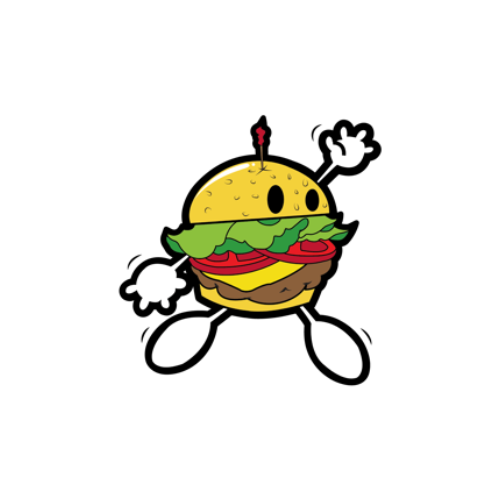I Went Behind the Scenes on Heart & Vascular Health with Sentara Healthcare!
February is American Heart Month, a time when all people can focus on their cardiovascular health or, in other words, health of the heart and blood vessels. While I'm familiar with my heart, its function, and how important it is, I can honestly say, prior to a couple days ago, I didn't know nearly as much as I thought. I’m 34 and can bet a vast majority of us in this age group would agree, we don't talk enough about this topic. If you are anything like me, not long ago, you may have felt like we were invincible, or perhaps this was a conversation better suited for our parents in their 50s and 60s, right? Wrong.
Did you know heart disease doesn’t happen just to older adults? It is happening to younger adults more and more often. This is partly because the conditions that lead to heart disease are happening at younger ages. Bad habits like a sedentary lifestyle, alcohol abuse, and unhealthy eating also increase risk factors for heart disease. While important factors like your family history are something to definitely consider, it is not the only factor for developing cardiovascular disease.
That said, I was happy when I was approached by Sentara Healthcare to be a part of their “Who Has Your Heart?” campaign. I had the opportunity to shadow Dr. Deepak Talreja, Interventional Cardiologist with Sentara Cardiology Specialists - Structural Heart Center. I met Dr. Talreja at Sentara Virginia Beach General, and between his patients, we were able to discuss items like questions to ask our parents and grandparents when talking about our family heart history, stress reduction tips, and steps you can take today to work toward a healthier heart!
"Many young people are at the stage where they are developing heart disease, with no symptoms." - Dr. Deepak Talreja, Interventional Cardiologist at Sentara Cardiology Specialists
This Heart Month, Jarrell Williams of Nomarama joined Dr. Talreja to explore the impact of nutrition and family history on heart and vascular health.
Dr. Talreja and I jumped right into discussing habits, diet, and other life factors. I shared how my focus at the beginning stages of Nomarama was purely around the best, biggest, and greasiest food as those typically got the best response. But as time went on, I learned quickly that our bodies aren't meant to break down processed foods like this over and over. Moderation is key, and as much as I wanted to deny it, we can (and I am proof) develop allergies over time based on poor eating habits. For example, leading a lifestyle of a semi-negligent foodie, I was struck down with a gluten intolerance. Thankfully, it wasn't anything near heart disease, but considering my track record of burgers, one could say that I dodged a bullet.
During my time at Sentara, I also learned about multiple ways your doctor can check in on your heart health. Insert the “Cath Lab” aka the Sentara Virginia Beach General Hospital Cardiac Catheterization Lab to be exact. The Cath Lab is where they take patients experiencing blockages caused by plaque or, in worse cases, heart attacks. During a patient's visit to this part of the hospital, they are placed on a table with a giant X-ray that gives a full detailed view of the patient's cardiovascular system – heart, arteries & all – providing the doctor the ability to see where a patient is experiencing a clot. They can then go in using multiple methods to work and clear the blockage, implant a stent (a small mesh tube typically used to hold open passages in the body, such as weak or narrowed arteries) or, if a more serious situation, perform a bypass.
It was really cool and eye-opening to see this level of medical technology, but admittedly, seeing a real blockage on the screen like that was pretty terrifying and something that will stick with me for a long time, if not forever. I was also able to ask Dr. Talreja, “What are the best 5 questions to ask your PCP about your heart health?". Tune into the campaign to learn more!
Another instrument doctors use is called the echocardiogram, often referred to as an “echo”, and I got to check it out first hand. Upon first glance, it looked just like an ultrasound machine that a doctor would use for pregnant women. The technology is actually very similar. As the tech used a probe to scan over my chest, an image displayed on a monitor where they are able to see my heart, the valves, and its passageways.
All in all, a lot of information was learned for sure. And to be honest, I’m proud to say I was on the right track by changing up my habits long before this tour. Also, big shouts to my mom for staying on me about my cholesterol and making sure I was seeing my doctor for regular physicals.
While everyone is different, you can do your part to take care of yourself. An easy lifestyle change is increasing fruits & veggies in your diet, as well as including more whole grains, eggs, legumes & foods high in omega-3 fatty acids, like salmon.
Another easy tip for a healthier heart? Get active! I understand we are all busy, but something as simple as just 30 mins a day at least 5 days a week. Hey, even just starting with 3 days/week is A GREAT START. I recommend activities like brisk walking, running, swimming, skateboarding, cycling, or my favorite, hiking somewhere beautiful to enjoy nature! Heidi Joy even just likes to take dance breaks throughout the day for a fun energy boost wherever we may be!
Thanks again, Sentara for taking the time to have this “heart-to-heart” with Nomarama, here’s to healthier hearts!
Additional Sources Referenced:

